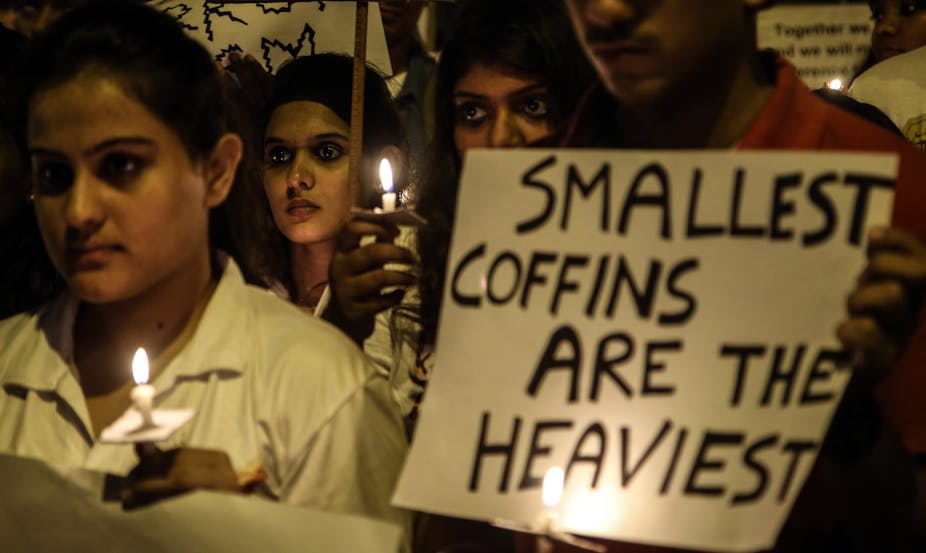Ever since Taliban militants murdered 153 people, many of them school children, in cold blood on December 16 2014, the country has been grappling with the question of how to kickstart its justice system in response.
Pakistan’s parliament unanimously passed legislation on January 6 allowing military courts to try terrorists. The 21st Amendment was signed into law by the president the next day. According to the government, the courts will have a limited mandate and this will not be used indiscriminately.
Some in Pakistan have criticised the measure and raised concerns about the expansion of military powers in a country that is no stranger to military coups. Indeed, in the past, these powers have been used for political victimisation – and in a functioning democracy, there can of course be no place for such an arrangement.
But the civilian justice system in Pakistan is corrupt to the core, and its long-winded procedures often protect the powerful at the cost of the weak. People are routinely detained for decades without ever having a day in court; the police, too, are underfunded, poorly equipped and highly corrupt.
Above all, the unabated terrorist attacks in Pakistan since 9/11 have only further exposed the inherent flaws in the system.
Failure to protect
There have been dedicated anti-terrorism courts in the country since the Anti-terrorism Act (ATC) of 1997, but these have failed to do their job. Many critics of the military courts belong to the same group that opposed anti-terrorism courts headed by civilian judges, on the plea that completion of trials within the stipulated seven days undermined natural justice.
Subsequently, ATC judges – already skilled in the art of procrastination – began taking up to several months to decide important cases. Adding insult to injury, appeals against ATC rulings take not months but years to be processed.
In the end, the boundless judicial dithering and dysfunction means that justice is deliberately delayed or denied to the victims in view of the dire threats faced by witnesses and court officials; the state fails to provide adequate security to judges and lawyers, who face militant threats and attacks, and many have been killed with impunity.

Neither of the two civilian governments that have been in power since 2008 have seriously addressed the issue of terrorism by reforming and upgrading the legal system. The incumbent Nawaz Sharif-led government that has been in office since June 2013 has no full-time law minister. And had it begun sorely-needed judicial reforms a year and a half ago, it would not have had to turn to the military now.
So be it
The Pakistani public has witnessed scores of terrorist attacks and mourned more than 55,000 of their fellow citizens since 2001. But nothing shook them with greater force than the slaughter of the school children in Peshawar. This was a tragedy everyone could relate to. People are scared to send their children to school; the winter break has started early and is due to last longer than usual.
Given the situation, the ordinary people of Pakistan have no time for political games and intellectual debates on the indispensability of democracy.
On January 5, the Pakistani Taliban leader Mullah Fazlullah released a video vowing more attacks on children. There is little in place to stop him. At present, the police are poorly trained and underfunded; witnesses and court officials receive no protection. As the Dawn newspaper put it , the political leadership has “abdicated its responsibilities”.
If military courts can help to save Pakistan’s children, then so be it. But it is ironic that despite the presence of an elected civilian government, it is the military that appears to have the will to dispense speedy justice.

